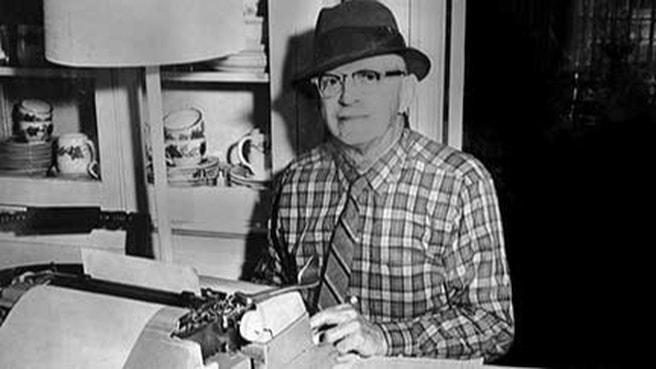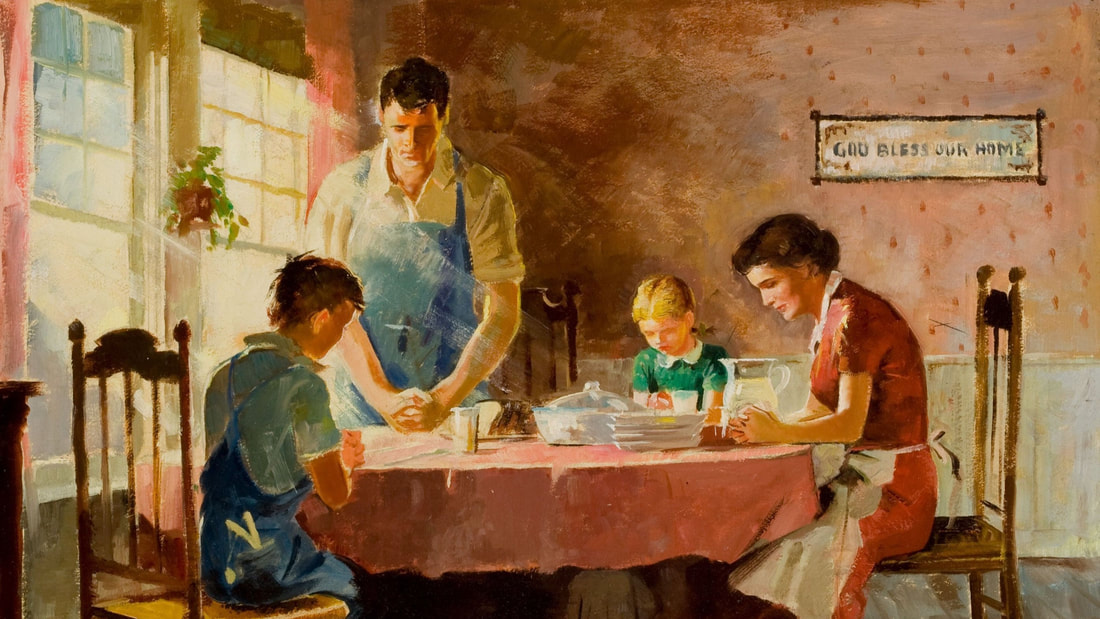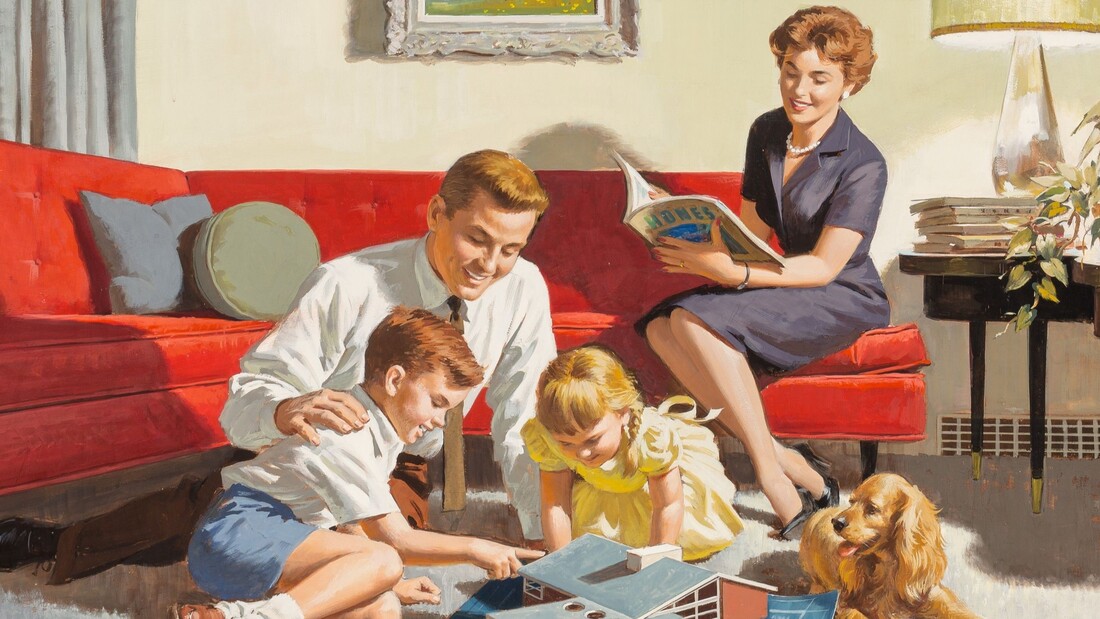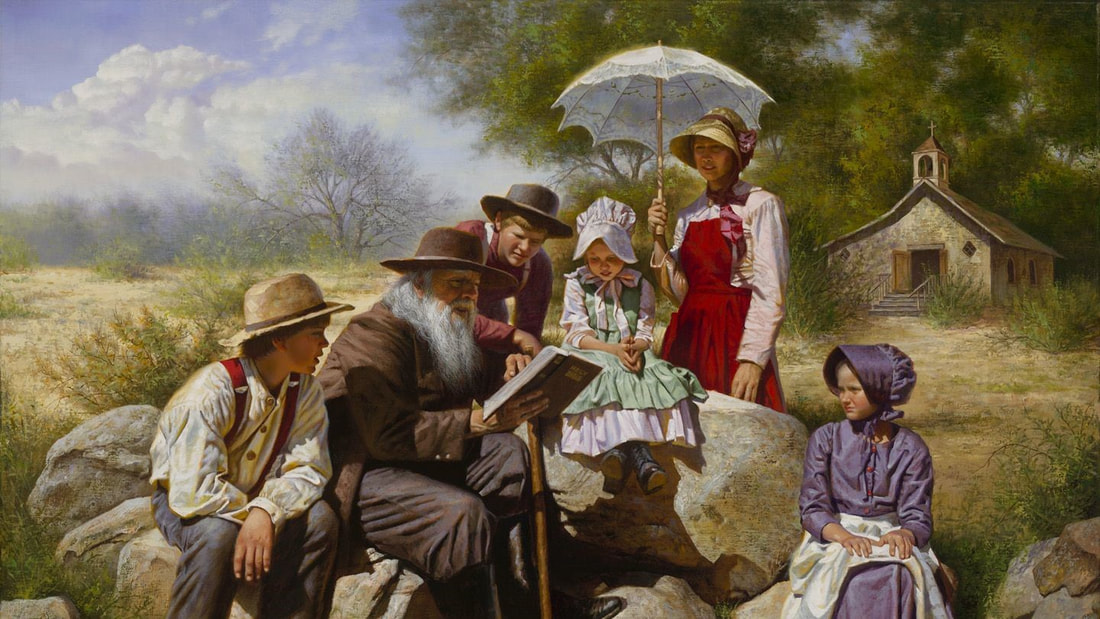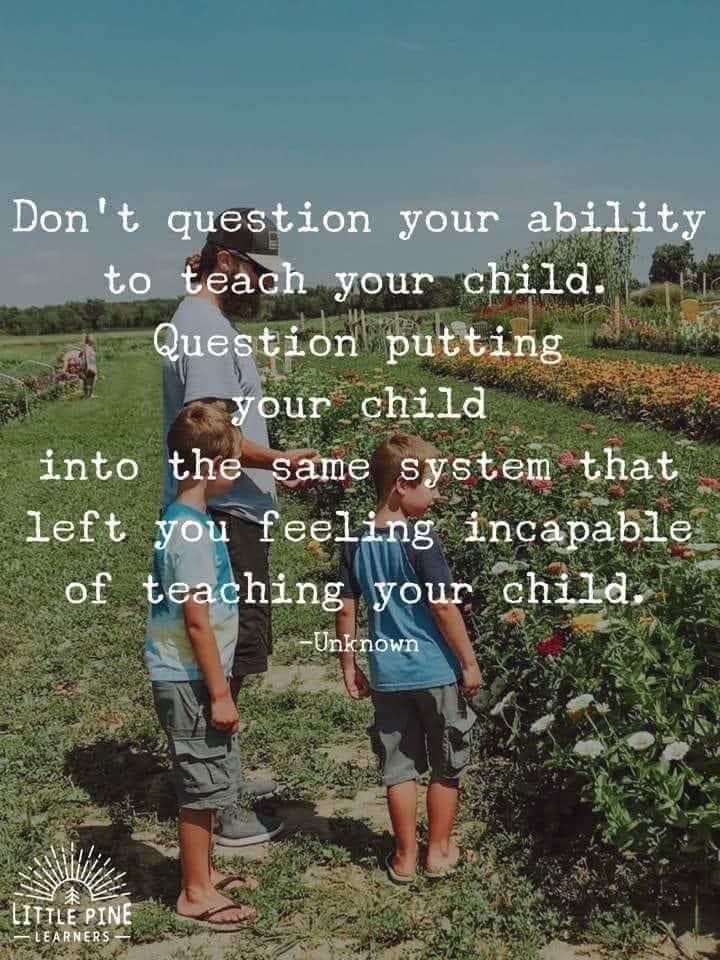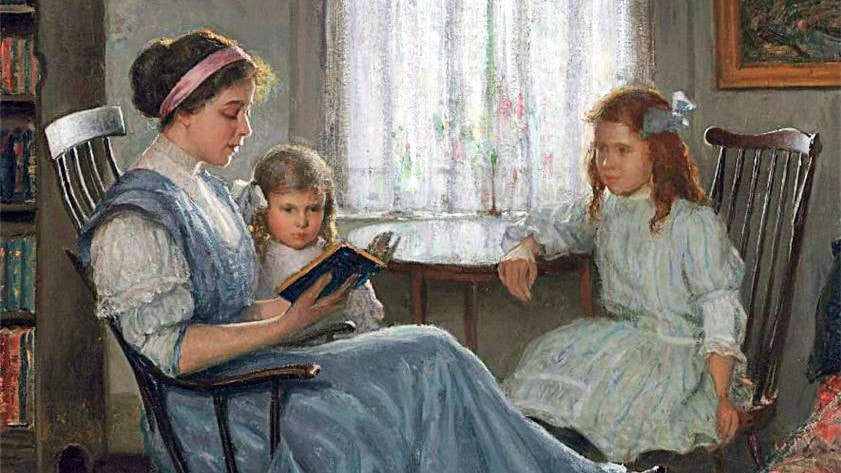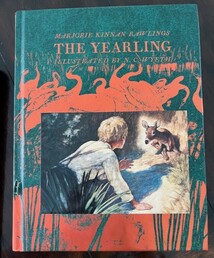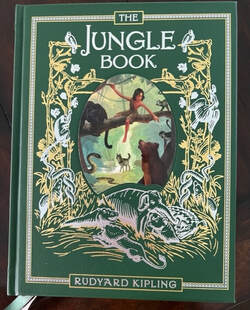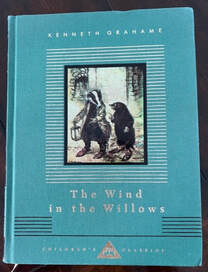|
Dr. Jim Kibler’s new book, ‘Faulkner the Southerner & the Continuity of Southern Letters,’ has taken me by storm and is teaching me much about Faulkner, but also about dozens of other Southern writers. Some are familiar, a few are not. If I’d ever heard the name Havilah Babcock, 1898-1964, I sure don’t recall, but now two of his books have been ordered, read, and grace my shelves with the hope that some of my posterity or friends or strangers will one day read and enjoy them as much as I. He was a writer and poet as well as a sportsman whose main interests were quail-hunting and fishing, and who was born in Virginia, keeping house and property there throughout his life, while living in South Carolina for the years of his career. The first book of Babcock's that Dr. Kibler mentioned and that I have now read was 'The Education of Pretty Boy,' first published in 1960, with his dedication reading, "This book is dedicated to the Bureau of Internal Revenue, with the hope that it will be of interest to them." Now Babcock was not only a humourous, quail-hunting, fishing man, but he supported his wife and his sporting habits by teaching English courses for almost 40 years at the University of South Carolina, and a doggone great teacher he evidently was from what I've read online. 'The Education of Pretty Boy' has a bit of a sad beginning..."
But it just gets better and better in the short 160 pages, with the heart-warming story taking place in a small town in the 1930s, interesting main characters, touches of whimsy, tales of outdoors Virginia, and a great little book for anybody who quail hunts, hunts fowl of any kind with dogs, grew up in a hunting family, likes to roam fields and woods with their dogs of any breed including mutts, makes their land desirable and inviting for quail and who loves hearing that bob white call in season, ever loved a dog, or just likes to read...this is your book!
I'm not sure whether this book is still in print. My copy of 'Pretty Boy' from Abebooks was a 1985 reprint, and I easily obtained 'The Best of Babcock,’ but I can't recall the source. At any rate, 'The Education of Pretty Boy' has my high recommendation.
8 Comments
Dear younger sisters, In our quest to have a peaceful home, let’s begin with a few Proverbs that highlight what God says about that most unlovely and unhappy specimen of humanity: a quarrelsome woman:
A few thoughts on practical, and not impossible, ways to bring peace to your home via your relationship with your husband: Pray for him during the day. Have a pleasant demeanor with a pleasant voice. Ask him about his job. Be interested. Listen well. Ask his thoughts and opinions on any subject matter. Praise him when you are alone, as well as in front of others. One of a man's God-given needs is to be admired. And it IS God-given. Submission:
Note: Susannah Spurgeon called her husband Charles "My Tirshatha." Governor. High civil dignity. The authority over the husband is God Himself, just as the head of the wife is the husband. These are God-given roles. The buck stops with the husband. He has a tremendous amount of responsibility for his wife and children. So, when a decision is discussed between you, please give your opinion on the matter ONCE, (ONCE!) then LEAVE IT ALONE. Do not pout, nor rant, nor say ugly things if your opinion differs from your husband's. God gives them not only the responsibility and authority, but gives them special wisdom for these matters that He does not give wives. The results (good, bad, or indifferent) of every decision your husband makes falls directly on him. Do not be unlovely at these times. If you have children at home, you will model submission and grace as they observe your behaviour towards their father. And you'd be surprised at how much burden is lifted from YOUR shoulders when you choose to submit gracefully. Never discuss anything negative about your husband with ANYBODY, including your mama, your sister, or your bff. Tell the Lord about it and see what happens. NEVER turn him down. EVER. If he says, "Come on and ride down to the creek with me while I check on the fence in a certain area," then GO with him. Doesn't matter if there's a pile of dishes in the sink or anything else that you think you need to do right away at home. GO. Do. Participate. He wants to spend time with you alone sometimes. If he wants to hug, smooch, and dance with you, well, just hug and smooch and hold tight right back. And if he wants to make love, respond in kind with warmth. ALWAYS. EVER. UNFAILINGLY. The Lord made men and women to be different for reasons. Men are logical and strong and usually calm. We are the weaker vessel, made to be nurturers, we also are emotional creatures, and, according to the Bible, easily deceived. (See 1 Timothy 2:14.) And what of an unbelieving husband? 1 Peter 3:1-2 states: "Likewise, ye wives, be in subjection to your own husbands; that, if any obey not the word, they also may WITHOUT THE WORD be won by the conversation (behaviour) of the wives; While they behold your chaste conversation coupled with fear." Here the Lord tells us that He can take care of your husband's salvation and you don't need to nag or preach. Relaaaaax. You only need to do YOUR part...submit to him. May the Lord give you His great wisdom to be the wife HE wants you to be. All you have to do is ask. With a great deal of love to each of you, and my continuing prayers as you seek to make your home a peaceful one, Katie There is a Christian lady on Facebook and Gab and probably other social media, Lori Alexander, The Transformed Wife, who has the gift of saying important things in a few sentences. If you come across her on your own social media places, give her an add. She is very wise. There are so many ways the scourge of feminism and the women’s rights movement has destroyed lives, marriages, homes, the unborn, children of all ages, and the Western world. The feminist movement is putrid, to say the least. And women should never have been given suffrage, but I am digressing already on another topic! One of the ways Christian women in particular can counteract this scrofulous carbuncle on the face of our own little spheres is to choose to have a peaceful home. There are everyday ways and more difficult ways, and I will share a few of those things with you ladies in this article. Not from one who did it all perfectly, nor from one who has a regret-free mind as a widow, but from one who as a long-time Christian is still learning as I go along in life, and I want to share a bit with you. First thing to do is purge from your vocabulary and mindset the tired but somewhat true old saying, “If mama ain’t happy, ain’t NOBODY happy.” Life and making a home your husband’s castle is not going to be easy if you are focused on your self, your needs, your desires. One of the everyday things you can do is to strive for a REASONABLY uncluttered house. Children can help clear away things periodically during the day and especially before daddy comes home. In the same vein, it IS going to be cluttered just from living, and especially if you’re homeschooling, but a 7-minute time frame to put things away works well. Train your children for all jobs inside and outside according to their ages and abilities. They are capable of a lot more than you might think, and like to feel needed to make the home run smoothly. Be through using your washer and dryer by the time your husband comes home. Call it a day for general housework a while before he arrives. No phone calls or texting with your mama or friends when hubby is home. Greet your husband at the door with a smile, a warm hug and kiss and tell him how glad you are to have him home, hopefully having pinched your cheeks, spritzed on a bit of perfume, and done a little something with that hair before he walked in! Have a good meal cooked for him, expecting nothing from him in the way of help. He has worked all day for his family, let him have some peace and quiet when possible. These are just a few common things that will be a start or to a peaceful home. You probably have a list yourself of ways you make your home a haven for your family. Keep it up! In the next article I’ll add several aspects to making a peaceful home and blessing your husband purposefully. Titus 2: 3-5 The aged women likewise, that they be in behaviour as becometh holiness, not false accusers, not given to much wine, teachers of good things; That they may teach the young women to be sober, to love their husbands, to love their children, To be discreet, chaste, keepers at home, good, obedient to their own husbands, that the word of God be not blasphemed. The top reason for our family, and many others, to homeschool our children was to have the freedom to teach them the principles, precepts, and applied practical living out of our faith in Jesus Christ. The Lord takes our entire lifetime to teach us what He wants to, to mold us into the image of Christ. Our course is not finished in a month or a year, but a lifetime. Daily instruction in any matter is bits and pieces at the time, according to the maturity of the student and the subject matter. Isaiah 28:10 states,
All through any day are opportunities to teach about our faith in God and His word. The main reason for learning to read is to be able to read that word for oneself. The apostle Paul, in writing to Timothy, his younger brother in Christ, states,
Have your children memorise Scripture also. Paul to Timothy again:
Each child is a gift, a reward, an heritage from thrice-holy God, and for Christian parents our duty is to teach those children all that we know about Him from their birth until they leave the nest…and beyond when opportunities arise. Secondly, there is no teacher on the face of the earth who loves your children as much as you parents do, and who always has their best interests in mind. Third, at home, there are no foolish peers to influence the heart and mind of your equally foolish child, as there are in school settings. His siblings and parents are who he sees and interacts with most of the time. Through visits to grandparents and other family members, older neighbors, members of your church, interaction with other families with children of all ages, your child learns to be comfortable chatting with people of every generation, and doesn’t have the pack mentality of those who live their lives five days a week, 4-6 hours a day, with their age mates, with very little one-on-one interaction with the classroom teacher. Peer pressure is kept to a minimum. There will be tons of opportunities for pursuing interests and hobbies. Usually in communities there will be a homeschool group or two to offer support and activities. I just noticed that the Extension Office in my county has 4-H for homeschoolers. My older grandchildren took lessons at their church (which amazingly is comprised of ALL homeschooling families) the last quarter before Summer just once a week in guitar, water colour painting, Spanish, and sign language. Two each. There are music lessons to be taken. Older boys could learn useful skills such as plumbing, carpentry, electrical, animal husbandry, mechanics, etc, etc, from professionals in those fields. The list is endless and varied according to the interests of each child and family. Daddies have skills to pass on to the children and those skills are mostly, though obviously not exclusively, around the home and shop. I would only warn that you don’t overload your “extracurricular schedule” and wear Mother and children down. Too much activity is worse than none at all. And you cannot create a love for home if you’re not at home. I leave you with a few little quotes on the topic: “Homeschooling isn't an experiment. People have been learning at home for thousands of years. Government schooling is the experiment, and it's not going well.” - Anon "Even a parent who is not a superior teacher will excel over a state school, for the secret lies not in the skill of the teacher, but rather in the one on one interaction, the absence of all the state school propaganda, and God's consonantal family blessings." - Gene Long If you can read, write, and do simple math, you’re all set! Keep it simple to begin with as to book work. You are NOT competing with public or private classroom studies. Three subjects a day to master the basics is fine. A couple of hours in the morning should be sufficient for “bookwork” - less than that for young children. Then they are free to pursue other interests and help with housework or yard work, etc. They need to know that it is a privilege to be homeschooled, and that all the family must work together to keep things organised and running relatively smoothly.
There are tons of materials to aid you if your family has decided to homeschool your children. It has been forty years since we began our journey, and more than 20 since we finished, so I have nothing specific to recommend as far as textbooks are concerned. It was only several years after we started that ABeka or Bob Jones University would make their curriculum available to homeschoolers, and those were the two main offerings for a while. A friend recommends material from the Bluedorns, and here is a link to a little review of some of what they offer. We used Saxon math for several years and really liked it. There are probably hundreds of choices. As I said, and I add a PLEEEEASE... keep it simple. Let me add that you have many choices of textbooks. You WILL have to make your own decisions about what you think best for each child, and you WILL be disappointed in some of your purchases through the years, but you WILL really like some of your choices. And be thankful that you have cell phones and the internet to aid in your search! Your youngest children you can teach simple math to by having them count dried beans or small stones or canning jar lids or whatever you can easily lay your hands on. You can teach the child to write the numbers on a piece of notebook paper as you teach them to add and subtract. Division and fractions? Cut up an apple or orange. When you let your children come along beside you to bake, you can find fractions in the measurements. Measuring cups and spoons are perfect for that. Keep a small white board handy. You’re teaching ALL the time. Reading good books aloud to your children will naturally increase their vocabulary and interests. You can make a list of spelling words from anywhere you want…the current book you’re reading aloud…recipes…an old letter from an ancestor…the sky’s the limit here, folks! I’m sure there are spelling, phonics, grammar, etc, workbooks to use if you want to. I’ll touch just a bit here on unit studies. I don’t have a formal definition but if you take ONE subject and expand it into SEVERAL subjects to study, that is a unit study. The first “for instance” from our own experience that comes to my mind is William Tell. I wanted to formally introduce my little boys, then about six and four, to classical music, so I chose Rossini’s ‘William Tell Overture’ for a beginning. (I can see them now galloping all over the house to the finale! Their enthusiasm knew no bounds! I digress.) What all can you study with this one topic? Well, there’s the story of William Tell himself, a short explanation of folklore vs historical fact, and how God always knows the truth about EVERYTHING even when we don’t! "Where did Mr. Tell live?" brings in geography, using a large world map which you will sooner or later have on a wall somewhere in your house, and/or a globe. And what about the Swiss people and their government and the Alps, and Rossini himself, his country, his history, his gifts and interests from God? Well, my people, the list is limited only by your imagination and creativity. The ripples in the pond keep a’going for a long time! A second idea involves music also. Another classical piece that introduces children to the different sounds of instruments in an orchestra is ‘Peter and the Wolf’ by Prokofiev. I think our tape (Yes, cassette tape. We’re THAT old!) featured Peter Ustinov as the narrator. We were also blessed in our town to have a good orchestra that once upon a time had a little show and tell of instruments before some of their concerts. At any rate, this is another fun piece of classical music. And then the unit study mindset kicks in and…Russia…Prokofiev…Ustinov…geography…topography…a bit of history… This is enough for now. More later Lord willing. The scope of the subject of homeschooling is so broad that it is hard to know how and where to even begin an article, so I’ll open with how our family’s journey commenced in 1982.
In the Fall of that year our sons, Sean and Finn, were four and two. We had enrolled Sean in a K-4 program at a local Christian school. Three days a week, three hours a day. The year before, he had attended the same school, K-3, two days a week, three hours each day. The earlier, the better, was my husband’s and my way of thinking at that time. One of those mornings, while Sean was at school, the two-year-old Finn was playing, and I was ironing and listening to Dr. James Dobson’s radio program with his guest Dr. Raymond Moore, of whom I’d never heard, but who was a strong homeschool advocate, author of “Better Late than Early,” “Home Grown Kids,” and several other books on the general topic. Everything Dr. Moore said made perfect sense, and that day I knew that’s what we needed to do! My husband Big Sean was more cautious, but heard me out, was fine with pulling Sean out of the K-4 program, allowed me to buy the first book mentioned, and six months later he and I went over to Brunswick, Georgia, to hear Dr. Moore speak in person on this homeschooling thing! After that, Big Sean said, only somewhat reluctantly, “OK. You can teach Sean at home for Kindergarten, but that’s all.” It was a one-year-at-a-time thing until the end of Sean’s third year of homeschool, when his daddy saw that it was a very good thing for us all in many ways, and we continued until both boys were through with high school studies. Big Sean and I were, like our peers, products of local public schools. His parents were college-educated, as were Big Sean and his brothers. His mother taught in a public school until she married. My mother graduated from high school and my daddy went through the 6th grade. Both were readers. I graduated from high school and attended a local college for exactly two quarters, when I thought, “Good grief. I am miserable and this is ridiculous. I do NOT want to be here. I’ll just continue my little office job until I get married.” So I did. That’s all I ever wanted to do, be a wife and mother and keeper at home, which is the highest calling for a woman, according to Scripture. I had never heard of teaching your children at home, unless it was in the context of what the Amish or Mennonites did. It was not a “thing” in those days. At first I used workbooks from the local dime store for Sean to begin learning to write and do easy arithmetic, etc, but there are dozens of things to learn just around a suburban house and yard. Everything in life can be a learning experience and wisdom and knowledge do not come from “official” textbooks and tablets. Next article will be some of our reasons for teaching our children at home along with a few practical details regarding books, teachable moments, unit studies, and more. Part 2 coming soon! As an avid reader and bibliophile I obviously think books are important. Building a library is a lifelong project, and a long life brings about a problem…where to build more shelves!
In this article I wanted to encourage the giving of well-illustrated books to the children in our lives. Children, grandchildren, nieces and nephews, children of friends, etc. I like books written long ago by our own folk. Preferably before about 1950, though obviously not exclusively. My favourite illustrator is N. C. Wyeth, and there is a host of others to choose from. The three books I use for examples for this article were illustrated by Wyeth, Arthur Rackham, and Maurice and Edward Detmold. These are some that I read to my grandchildren when they’re here at my house. There are hundreds and hundreds of others to be found “out there.” There’s nothing much like having children cuddled around you, listening to a new-to-them book or an old favourite read by someone who loves them. Illustrated with beautiful, exciting, and sometimes scary ! (in the case of Rackham) artwork. Making lifelong memories. One of my own best memories is reading to my little boys long after they could read on their own, and reaching the end of a chapter, closing the book and saying, “We’ll read some more later on,” and their piping up, “No Ma! Wead! Wead! Pleeeease!” (It took them both a good while to be able to pronounce their “Rs.”) And most times I’d read on. Just a few easy places from which to order are Amazon, Abebooks, and a new online store highly recommended recently by a friend, Bookteria. Please feel free to share other sources that you know about. Enjoy the hunt and the giving! |
AuthorKatie O'Neal is a Georgia native living in the Heart of Dixie. She is a Christian, a widow, a mother, and a grandmother. She was a homeschool mama in the 80s and 90s, and is currently a homeschool grandma. She is rabidly in love with her immediate family, her blood kin, and her Southern folk and their history, culture, and future. She has been a reader from childhood. She is an agrarian-minded homemaker, and more…but this’ll do for now. Archives
February 2024
|
Proudly powered by Weebly

